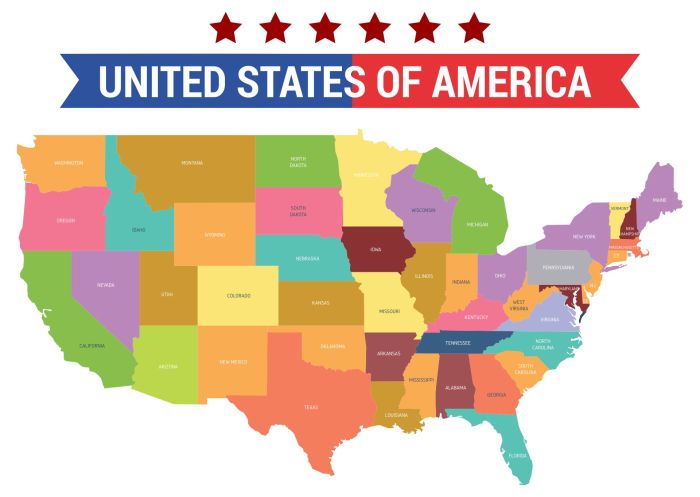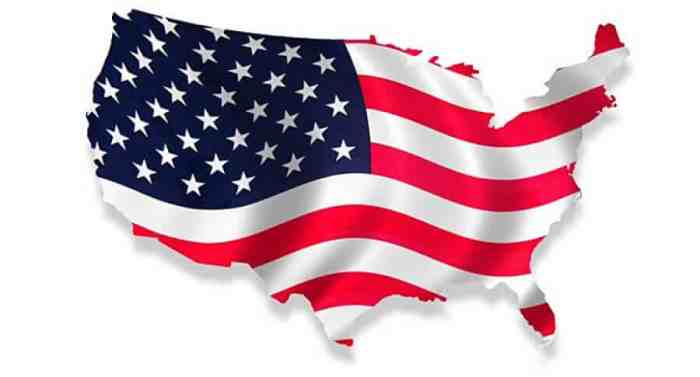US lawmakers attend Paris airshow amid tariff national security concerns, highlighting a complex interplay of global economics and geopolitical tensions. The Paris Air Show, a significant international aviation event, typically draws prominent figures from the global aerospace industry. This year, however, the presence of US lawmakers comes amidst growing concerns about tariffs and their impact on national security, adding a layer of complexity to the usual diplomatic exchanges.
The current geopolitical climate further complicates the dynamic, potentially straining US-European relations. Understanding the trade and economic agreements between the US and European nations is key to comprehending the underlying issues.
The show’s significance as a global platform for showcasing and discussing advancements in aviation technology is undeniable. However, the backdrop of US tariff policies and their effects on international trade casts a long shadow. National security concerns, often intertwined with economic considerations, add another dimension to the discussions. This year’s Paris Air Show could offer insights into how US and European lawmakers navigate these complexities and the potential economic repercussions for both regions.
A timeline of recent US-European trade disputes and a table outlining the types of tariffs imposed by the US will provide further context.
Background on the Paris Air Show: Us Lawmakers Attend Paris Airshow Amid Tariff National Security Concerns

The Paris Air Show, a cornerstone of the global aviation industry, has a rich history. For decades, it has served as a premier platform for showcasing cutting-edge aircraft technology, fostering international partnerships, and driving innovation in aerospace. This year’s event, however, takes place against a backdrop of heightened geopolitical tensions, particularly concerning trade relations between the US and certain European nations.The show’s significance extends beyond its role as a trade fair.
US lawmakers attending the Paris Airshow amidst tariff national security concerns are likely feeling the ripple effects of global economic tensions. While trade disputes remain a major focus, the recent news of the Swiss National Bank being placed on the US watch list for potential currency manipulation, as detailed in this article swiss national bank denies currency manipulation after being put us watch list , further complicates the situation.
This adds another layer of complexity to the already delicate negotiations, potentially impacting the US’s position on international trade agreements and future airshow deals.
It’s a vital forum for strategic discussions, fostering cooperation and competition within the aerospace sector. The sheer volume of global participation underscores its importance as a barometer of the global aviation landscape.
Historical Significance of the Paris Air Show, Us lawmakers attend paris airshow amid tariff national security concerns
The Paris Air Show boasts a long history, dating back to a time when air travel was nascent and aviation technology was rapidly evolving. Early editions of the show witnessed the debut of groundbreaking aircraft designs and marked pivotal moments in the development of aviation. Its evolution reflects the broader evolution of the global aviation industry. The show has consistently adapted to changing industry needs, maintaining its relevance as a critical platform for showcasing advancements in aircraft design, manufacturing, and technology.
Its significance is further underlined by the continuous presence of leading aerospace companies and international delegations from around the globe.
US lawmakers are in Paris for the airshow, navigating tricky trade and national security concerns surrounding tariffs. Meanwhile, the recent Supreme Court decision allowing Elon Musk’s Dogecoin access to a vast amount of social security data, us supreme court allows musks doge broad access social security data , raises some serious questions about data privacy. This all underscores the complexities of international relations and domestic policy, particularly when it comes to digital assets and their potential implications for national security, which are important considerations for the lawmakers at the airshow.
US Lawmaker Participation in Previous Years
US lawmakers have traditionally attended the Paris Air Show to engage with their counterparts from other nations, fostering diplomatic ties and building relationships crucial for international cooperation. This participation is often aligned with US foreign policy objectives, particularly in the context of defense and technological collaborations. Previous years’ delegations have included representatives from various government agencies, providing an opportunity for exchanging views on critical aviation-related topics.
US lawmakers attending the Paris Airshow amid tariff-related national security concerns are navigating a complex situation. The presence of figures like former Trump ambassador, Mike Waltz , adds another layer to the discussions. While the airshow itself is a significant event for showcasing technological advancements, the underlying trade tensions continue to impact the atmosphere, highlighting the delicate balance between economic interests and national security.
Current Geopolitical Climate and US-European Relations
The current geopolitical climate is characterized by significant shifts in global power dynamics. Trade disputes, particularly concerning tariffs, have become a prominent feature of international relations, affecting US-European relations. The potential impact of these tensions on the Paris Air Show is significant, as it could potentially affect the level of engagement between US and European counterparts. Such a climate can impact bilateral cooperation and trade agreements, influencing decisions regarding joint ventures and research initiatives.
Role of Trade and Economic Agreements
Trade agreements between the US and European countries are vital for fostering economic growth and stability. These agreements create opportunities for increased trade and investment, driving economic prosperity and enhancing strategic partnerships. Bilateral economic agreements often contain provisions for reciprocal access to markets and reduced trade barriers, promoting economic interdependence and stability. Disruptions in trade relations can have substantial consequences, including impacting the flow of goods, services, and technology between the US and Europe, which in turn can affect the aerospace industry.
Tariff and National Security Concerns

The recent Paris Air Show, attended by US lawmakers, comes at a time of heightened tension regarding US tariff policies and their impact on international trade relations, particularly with Europe. Concerns about national security are intertwined with these economic considerations, leading to complex and potentially damaging repercussions for both sides. This analysis delves into the specifics of these concerns, exploring the rationale behind them, and assessing the potential consequences for both US and European industries.The US’s current tariff policies, particularly those targeting specific imports, have significantly altered the landscape of international trade.
These policies, often justified by national security concerns, have raised concerns among US trading partners, including those in Europe. The impact extends beyond the immediate trade figures, affecting supply chains, investment flows, and overall economic stability.
US Tariff Policies and Their Impact
US tariff policies have seen significant shifts in recent years. These policies often target imports deemed critical to national security, or to protect domestic industries from perceived unfair competition. The impact on international trade is multifaceted. Increased tariffs can lead to higher prices for consumers, reduced availability of goods, and potentially stifle innovation as companies seek alternative suppliers.
Furthermore, retaliation from other countries is a common consequence, leading to trade wars and disruption of global supply chains. Examples of this include the tariffs imposed on steel and aluminum imports, which triggered retaliatory measures from various countries, including the European Union.
Rationale Behind National Security Concerns Related to Tariffs
National security concerns often underpin the justification for tariffs. The argument centers on the idea that certain imports, particularly those related to strategic industries, are crucial for national defense capabilities. These industries could be vulnerable to disruptions if reliant on foreign supply chains. This concern is particularly acute for technologies essential for military equipment, defense production, and critical infrastructure.
For example, tariffs on semiconductor imports might be justified by the argument that maintaining a robust domestic semiconductor industry is vital for national security.
Potential Economic Repercussions of Tariffs
Tariffs can have profound economic consequences, both within the US and in affected European industries. Increased costs for imported components can significantly impact US manufacturers, potentially reducing their competitiveness in global markets. Similarly, retaliatory tariffs imposed by other countries can severely affect European industries that rely on exports to the US. These effects often manifest as reduced profits, decreased production, and job losses in affected sectors.
For example, tariffs on European automobiles could harm European manufacturers and result in job losses in the automotive sector.
Perspectives of US and European Lawmakers on Trade and Security
US and European lawmakers often hold differing perspectives on the interplay between trade and national security. While the US often prioritizes domestic industries and security concerns, European lawmakers generally emphasize free and fair trade principles. This difference in perspective can lead to disagreements on the appropriateness and effectiveness of certain tariff policies. European lawmakers might view tariffs as detrimental to global trade and economic stability, while US lawmakers may see them as necessary for protecting critical national interests.
Timeline of Key Events Related to US-European Trade Disputes
- 2018: The US imposed tariffs on steel and aluminum imports, triggering retaliatory measures from the EU and other countries.
- 2019: Further tariffs were imposed on various goods, escalating trade tensions.
- 2020: The COVID-19 pandemic created further disruptions in global supply chains and impacted trade negotiations.
- 2021-Present: Ongoing discussions and negotiations between the US and the EU regarding trade disputes and security concerns.
Types of Tariffs Imposed by the US
| Tariff Type | Description |
|---|---|
| Import Tariffs | Taxes imposed on imported goods. |
| Ad Valorem Tariffs | Tariffs based on a percentage of the value of the imported good. |
| Specific Tariffs | Tariffs based on a fixed amount per unit of the imported good. |
| Safeguard Tariffs | Tariffs imposed temporarily to protect domestic industries from sudden surges in imports. |
| Countervailing Duties | Tariffs imposed to offset subsidies provided to foreign producers. |
Closure
In conclusion, the US lawmakers’ presence at the Paris Air Show this year is a critical indicator of the delicate balance between economic interests and national security. The concerns surrounding tariffs, and their potential impact on US-European relations, will undoubtedly shape the discussions and negotiations taking place. The show will likely serve as a significant platform for diplomacy and potential solutions to these complex issues, though the ultimate outcome remains uncertain.

